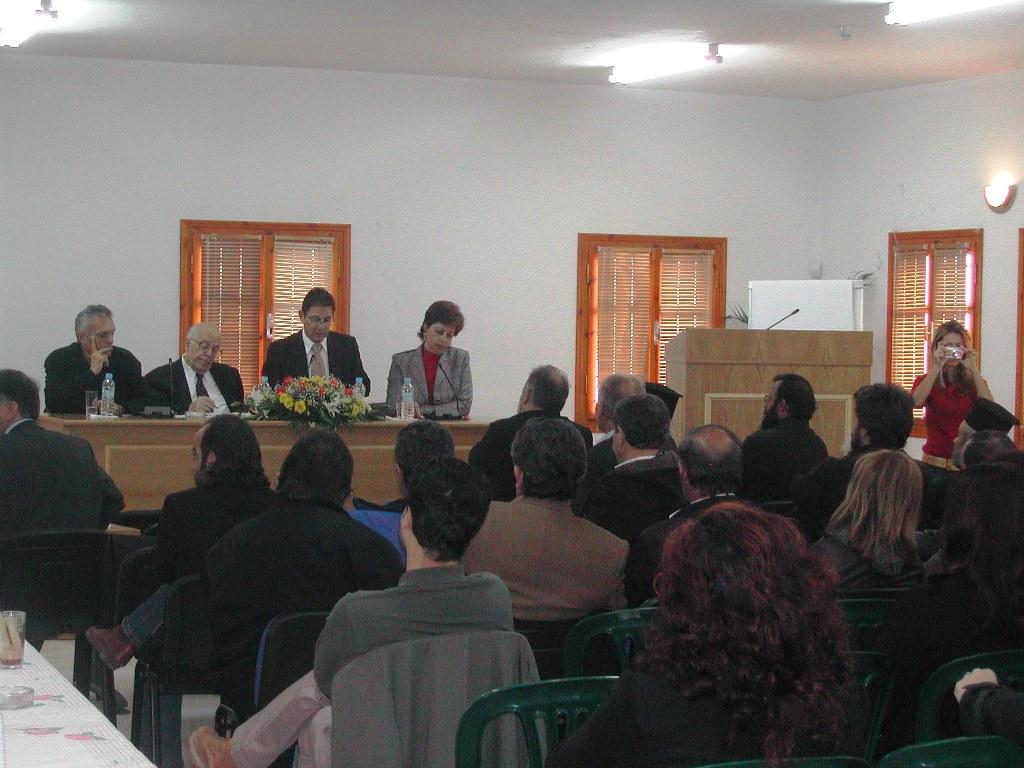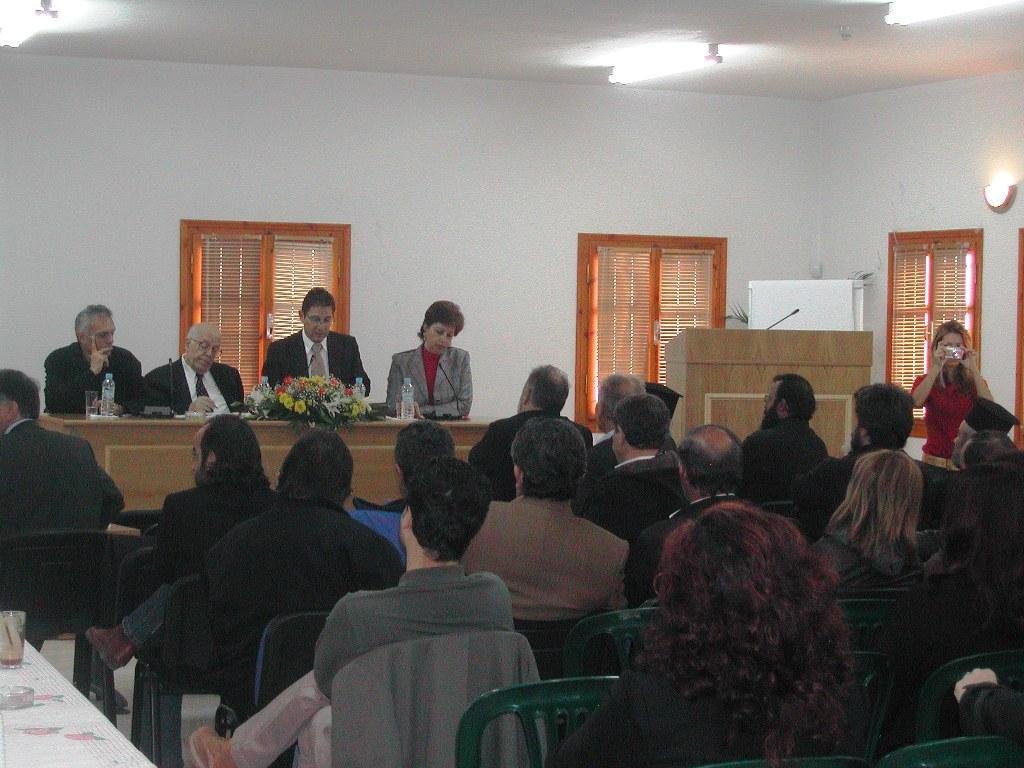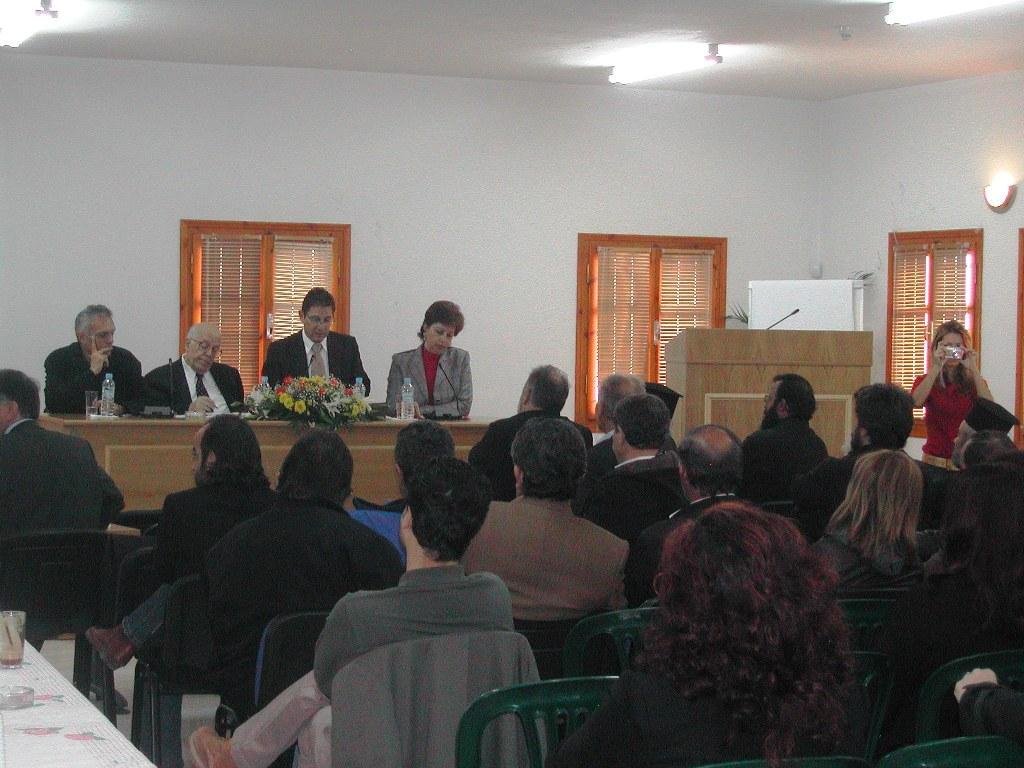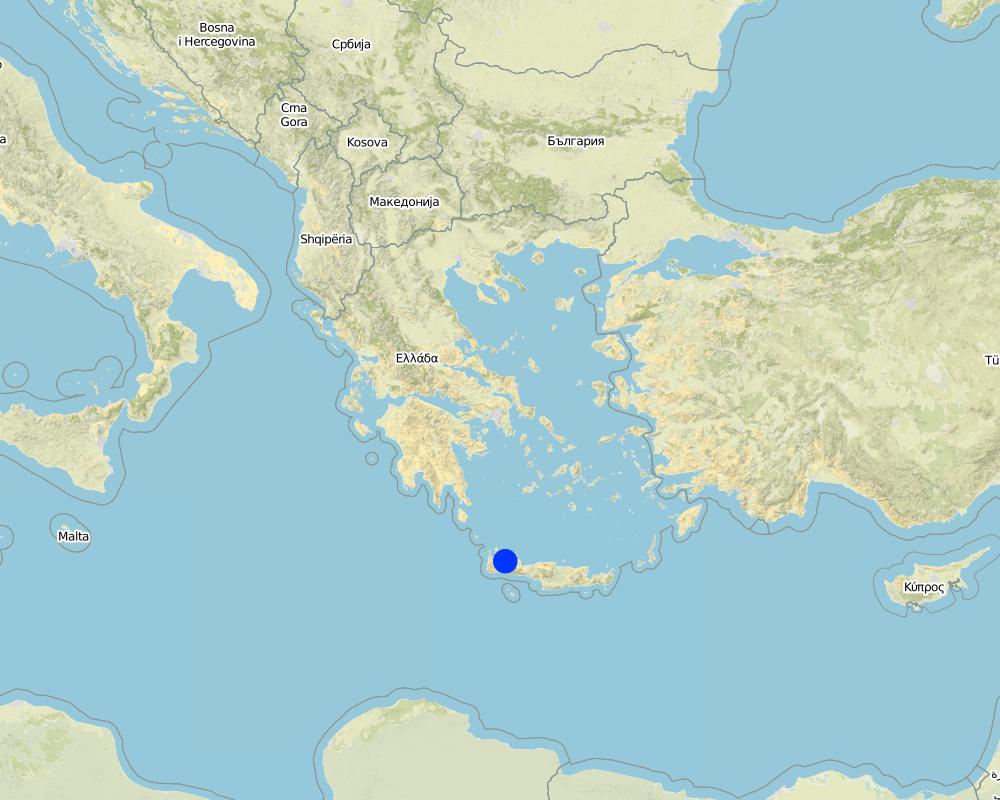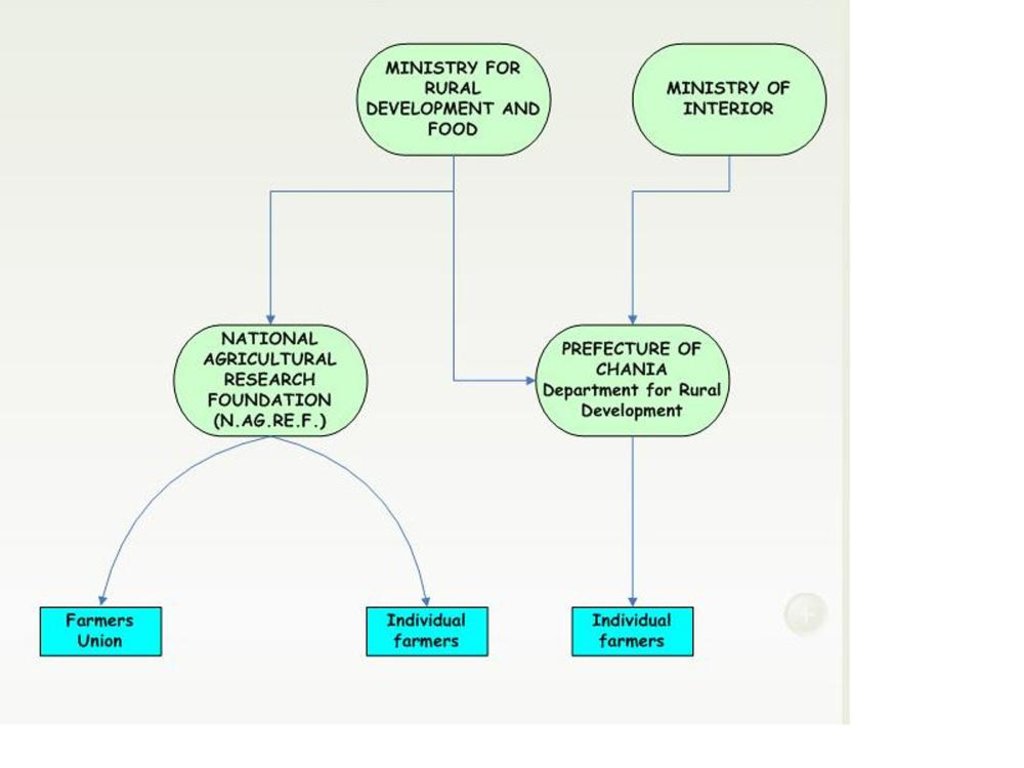Sustainable development of olive groves III [希腊]
- 创建:
- 更新:
- 编制者: Costas Kosmas
- 编辑者: –
- 审查者: Fabian Ottiger
approaches_2430 - 希腊
查看章节
全部展开 全部收起1. 一般信息
1.2 参与方法评估和文件编制的资源人员和机构的联系方式
有助于对方法进行记录/评估的机构名称(如相关)
Agricultural University of Athens (AUA) - 希腊1.3 关于使用通过WOCAT记录的数据的条件
编制者和关键资源人员接受有关使用通过WOCAT记录数据的条件。:
是
1.4 SLM技术问卷的参考
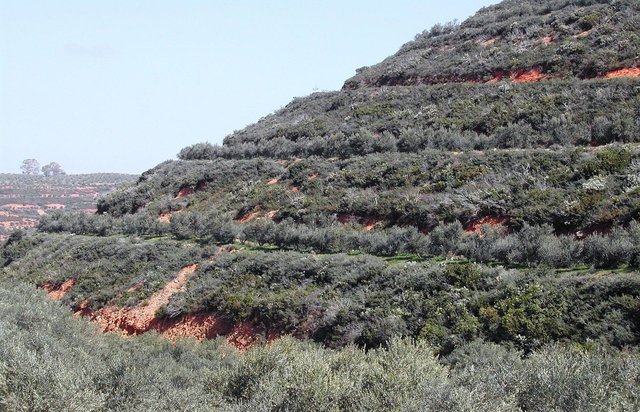
Land terracing in olive groves [希腊]
Terraces are constructions built mainly in hilly areas to reduce water erosion losses from cultivated erodible soils and for water conservation.
- 编制者: Costas Kosmas
2. SLM方法的描述
2.3 该方法的照片
2.5 采用该方法的国家/地区/地点
国家:
希腊
区域/州/省:
Chania and Heraclion prefectures of Crete
有关地点的进一步说明:
Crete
Map
×2.6 该方法的开始和终止日期
注明开始年份:
50
2.7 方法的类型
- 最近的本地倡议/创新
2.8 该方法的主要目的/目标
The Approach focused on SLM only
easy to harvest the plants, to apply fertilisers and to conserve soil and water.
The SLM Approach addressed the following problems: Terraces are constructions built traditionally in hilly areas and the promotion of this technique is focused mainly in the maintenance of already existing plantations
2.9 推动或妨碍实施本办法所适用的技术的条件
财务资源和服务的可用性/可得性
- 阻碍
technology of high economic requirements
Treatment through the SLM Approach:
了解SLM,获得技术支持
- 阻碍
the cost and the labour work of costruction new terraces are prohibitorily. The mainenance of such constructions can be more easily achieved.
Treatment through the SLM Approach:
3. 相关利益相关者的参与和角色
3.1 该方法涉及的利益相关者及其职责
- 当地土地使用者/当地社区
Great differences between the participation of men and women because the majority of land users are men. The approach concerned mainly producers located in less favourable areas.
- SLM专家/农业顾问
- 国家政府(规划者、决策者)
3.2 当地土地使用者/当地社区参与该方法的不同阶段
| 当地土地使用者/当地社区的参与 | 指定参与人员并描述活动 | |
|---|---|---|
| 启动/动机 | 互动 | |
| 计划 | 互动 | |
| 实施 | 外部支持 | |
| 监测/评估 | 无 | |
| Research | 无 |
3.3 流程图(如可用)
具体说明:
Organization chart showing the steering structure concerning the implementation of agricultural policy
3.4 有关SLM技术选择的决策
具体说明谁有权决定选择要实施的技术:
- 仅限SLM专家
解释:
Decisions on the method of implementing the SLM Technology were made by mainly by land users supported by SLM specialists. mechanized agriculture
4. 技术支持、能力建设和知识管理
4.2 咨询服务
土地使用者有权使用咨询服务吗?:
是
说明/注释:
Advisory service is quite adequate to ensure the continuation of land conservation activities
4.3 机构强化(组织发展)
是否通过这种方法建立或加强了机构?:
- 是,少许
具体说明机构的强化或建立程度:
- 本地
具体说明支持类型:
- 财务
4.4 监测和评估
注释:
There were no changes in the Approach as a result of monitoring and evaluation
There were no changes in the Technology as a result of monitoring and evaluation
4.5 研究
研究是该方法的一部分吗?
是
明确话题:
- 经济/市场营销
- 技术
提供进一步的细节,并指出是谁做的研究:
ISPOT, AUA
Research was carried out both on station and on-farm
5. 融资和外部物质支持
5.3 对特定投入的补贴(包括劳动力)
如果土地使用者的劳动力是一项重要的投入,那么是不是:
- 自愿
5.4 信用
是否根据SLM活动的方法给予信用值?:
否
6. 影响分析和结论性陈述
6.1 方法的影响
该方法是否帮助土地使用者实施和维护SLM技术?:
- 否
- 是,很少
- 是,中等
- 是,支持力度很大
decrease in soil loss and increase in water conservation
该方法是否有助于社会和经济弱势群体?:
- 否
- 是,很少
- 是,中等
- 是,支持力度很大
mainly men old aged, Greeks
Did other land users / projects adopt the Approach?
- 否
- 是,很少
- 是,中等
- 是,支持力度很大
whole country spatially
Did the Approach lead to improved livelihoods / human well-being?
- 否
- 是,很少
- 是,中等
- 是,支持力度很大
increase in farmers income in hilly areas
Did the Approach help to alleviate poverty?
- 否
- 是,很少
- 是,中等
- 是,支持力度很大
increasing income
6.2 土地使用者实施SLM的主要动机
- 增加生产
- 增加利润(能力),提高成本效益比
- 环境意识
- well-being and livelihoods improvement
6.3 方法活动的可持续性
土地使用者能否维持通过该方法实施的措施(无外部支持的情况下)?:
- 否
若否或不确定,请具体说明并予以注释:
increased construction cost
7. 参考和链接
7.1 方法/信息来源
- 实地考察、实地调查
- 与土地使用者的访谈
链接和模块
全部展开 全部收起链接

Land terracing in olive groves [希腊]
Terraces are constructions built mainly in hilly areas to reduce water erosion losses from cultivated erodible soils and for water conservation.
- 编制者: Costas Kosmas
模块
无模块


